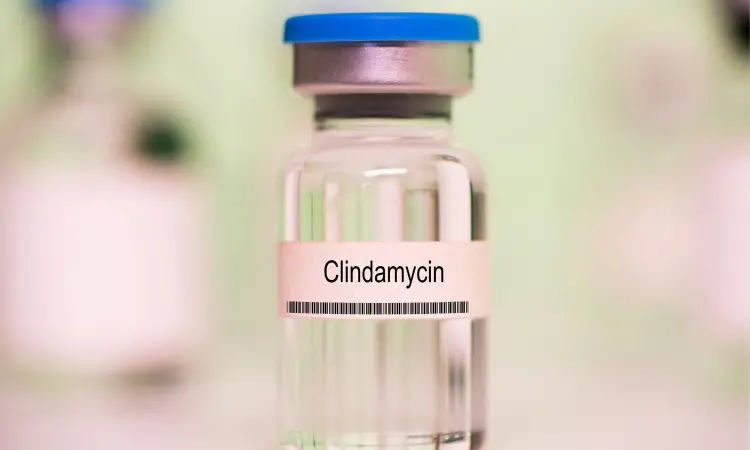- Home
- Medical news & Guidelines
- Anesthesiology
- Cardiology and CTVS
- Critical Care
- Dentistry
- Dermatology
- Diabetes and Endocrinology
- ENT
- Gastroenterology
- Medicine
- Nephrology
- Neurology
- Obstretics-Gynaecology
- Oncology
- Ophthalmology
- Orthopaedics
- Pediatrics-Neonatology
- Psychiatry
- Pulmonology
- Radiology
- Surgery
- Urology
- Laboratory Medicine
- Diet
- Nursing
- Paramedical
- Physiotherapy
- Health news
- Fact Check
- Bone Health Fact Check
- Brain Health Fact Check
- Cancer Related Fact Check
- Child Care Fact Check
- Dental and oral health fact check
- Diabetes and metabolic health fact check
- Diet and Nutrition Fact Check
- Eye and ENT Care Fact Check
- Fitness fact check
- Gut health fact check
- Heart health fact check
- Kidney health fact check
- Medical education fact check
- Men's health fact check
- Respiratory fact check
- Skin and hair care fact check
- Vaccine and Immunization fact check
- Women's health fact check
- AYUSH
- State News
- Andaman and Nicobar Islands
- Andhra Pradesh
- Arunachal Pradesh
- Assam
- Bihar
- Chandigarh
- Chattisgarh
- Dadra and Nagar Haveli
- Daman and Diu
- Delhi
- Goa
- Gujarat
- Haryana
- Himachal Pradesh
- Jammu & Kashmir
- Jharkhand
- Karnataka
- Kerala
- Ladakh
- Lakshadweep
- Madhya Pradesh
- Maharashtra
- Manipur
- Meghalaya
- Mizoram
- Nagaland
- Odisha
- Puducherry
- Punjab
- Rajasthan
- Sikkim
- Tamil Nadu
- Telangana
- Tripura
- Uttar Pradesh
- Uttrakhand
- West Bengal
- Medical Education
- Industry
Clindamycin-benzoyl peroxide gel may reduce antibiotic resistance and improve clinical efficacy in hidradenitis suppurativa

According to a recent study published in Dermatology, clindamycin-benzoyl peroxide gel showed favourable clinical efficacy results, similar to clindamycin lotion. This suggests it could replace clindamycin lotion for managing mild to moderate hidradenitis suppurativa (HS). This also prevents antibiotic resistance.
Antibiotic resistance is a significant concern in HS, and antibiotics form a cornerstone in its treatment. Topical clindamycin causes bacterial resistance, but for managing HS (mild to moderate), it is still advised as monotherapy.
In this study, researchers compared the clinical efficacy of clindamycin-benzoyl peroxide gel with clindamycin lotion in patients with mild to moderate HS. They measured the difference in the IHS4 or International Hidradenitis Suppurativa Severity Score after 12 weeks between the two groups as the primary outcome. The study's secondary objectives were the intra-patient design's feasibility, the treatment's efficacy within each group, its impact on HS pain and itch, patient satisfaction, the effect on antibiotic resistance, and the prolonged efficacy up to 16 weeks.
The key results of the study are:
- A total of 10 patients were included.
- There were two groups of 10 treated body sites.
- Researchers found no significant differences between the two groups after 12 or 16 weeks (for all measurements).
- Both therapies improved IHS4, pain, and itch scores.
- IHS4 decreased for the clindamycin lotion and the clindamycin-benzoyl peroxide gel following 16 weeks.
- Pain scores reduced from 7 to 2.5 and 6.5 to 3, respectively.
- Using the IHS4-55, researchers identified 50% of patients as responders in both groups after 12 weeks.
They noted that researchers reported favourable and similar clinical efficacy results for topical clindamycin-benzoyl peroxide gel and clindamycin lotion.
However, we encountered limitations due to the intra-patient design for the mild to moderate HS patient population. They said that more extensive randomized controlled trials are necessary to validate topical combination therapies' effectiveness and their impact on the diversity and resistance patterns in the skin microbiome more comprehensively.
Further reading:
Aarts, P., Reeves, J. L., Ardon, C. B., Van Der Zee, H. H., & Prens, E. P. (2023). Clindamycin-benzoyl peroxide gel compared with clindamycin lotion for hidradenitis suppurativa; a randomized controlled assessor blinded intra-patient pilot study. Dermatology, 239(4), 670–674.
BDS, MDS in Periodontics and Implantology
Dr. Aditi Yadav is a BDS, MDS in Periodontics and Implantology. She has a clinical experience of 5 years as a laser dental surgeon. She also has a Diploma in clinical research and pharmacovigilance and is a Certified data scientist. She is currently working as a content developer in e-health services. Dr. Yadav has a keen interest in Medical Journalism and is actively involved in Medical Research writing.
Dr Kamal Kant Kohli-MBBS, DTCD- a chest specialist with more than 30 years of practice and a flair for writing clinical articles, Dr Kamal Kant Kohli joined Medical Dialogues as a Chief Editor of Medical News. Besides writing articles, as an editor, he proofreads and verifies all the medical content published on Medical Dialogues including those coming from journals, studies,medical conferences,guidelines etc. Email: drkohli@medicaldialogues.in. Contact no. 011-43720751


